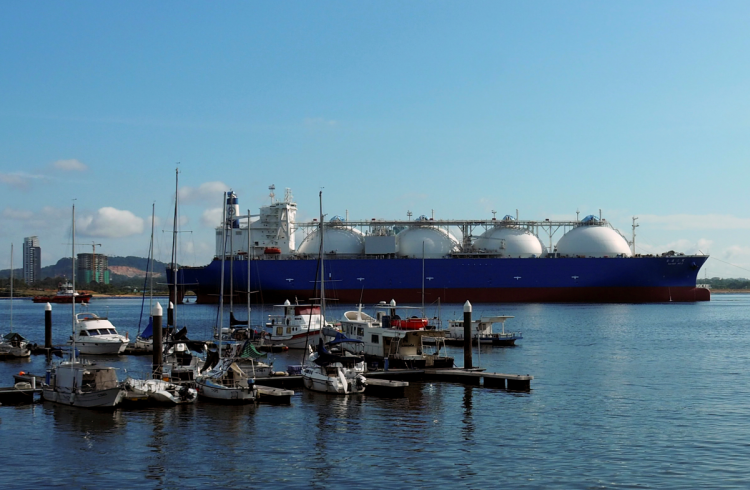Amid threats of a complete cessation of Russian gas supplies, Germany has inked a long-term import agreement for liquefied natural gas (LNG) with the U.S. The deal was signed on Friday, June 23, between Securing Energy for Europe (SEFE), a fully government-owned German company, and U.S.-based LNG supplier Venture Global LNG.
Under this 20-year pact, SEFE will import 2.25 million tonnes of LNG annually from Venture Global LNG. This is part of Germany's efforts to further substitute Russian natural gas.
Germany's shift toward LNG came after the Russian-Ukrainian conflict erupted in April last year, which led to the German government taking over Gazprom Germania GmbH, Gazprom's German subsidiary. The company was later renamed as SEFE, and the German government provided billions of dollars in loans to keep the operation running, citing the crucial role of SEFE in providing natural gas supplies and infrastructure for Germany and Europe.
SEFE reportedly emphasized that its partnership with Venture Global LNG marked a significant step in its mission to secure energy supplies for its German and European customers, as well as to meet the region's energy needs. Meanwhile, Venture Global LNG noted that Germany is taking decisive steps to diversify its energy mix, and LNG will play an essential role in this transformation, enhancing both energy security and environmental progress.
Analysts have observed that Germany, Europe's largest economy, has been reassessing its energy policy following a series of events including the Russian-Ukrainian conflict, Western sanctions, and Russia's drastic cuts to Europe's natural gas supply. Rather than relying solely on cheap resources transported through Russian pipelines, Germany is now constructing coastal floating terminals and regasification stations to receive LNG from other regions worldwide.
Germany has also begun signing long-term LNG supply contracts, shifting from its earlier preference for short-term agreements to gradually wean off fossil fuels. For instance, a recent deal indicated that, starting in 2026, Qatar will supply Germany with LNG through ConocoPhillips' subsidiary for at least 15 years, delivering up to 2 million tonnes of LNG annually. This agreement was heralded as Germany's first long-term supply agreement by Qatar.
Furthermore, data shows that Germany, known as the "locomotive of Europe," is the largest natural gas market in Europe, with substantial demand in the industrial, power, and residential sectors. In 2021, natural gas imported from Russia through pipelines accounted for 55% of Germany's total share, which dropped to about 20% in 2022.
Germany is planning to have a total of 10 FSRUs, some of which will be dismantled after completion and replaced by onshore regasification facilities. By 2030, Germany aims to have the capacity to import 70.7 million tonnes of LNG annually, becoming the fourth-largest holder of LNG import capacity worldwide, trailing only major Asian LNG buyers South Korea, China, and Japan.
On the previous Thursday, the Ukrainian Energy Minister revealed that Russia might halt its natural gas transit to Europe via Ukraine by the end of 2024 as the transit agreement with Gazprom is due to expire and the prospects of its renewal are "very slim." This transit route accounts for nearly 5% of Europe's total natural gas imports, representing the last normally operating gas pipeline from Russia to Europe.
As of the end of last week, the UK natural gas futures on ICE dropped nearly 5% at the close, down nearly 7% for the week, while the European benchmark Dutch TTF natural gas futures ended down nearly 2%, up 2.5% for the week. This is mainly due to power outages and maintenance at Norway's LNG export terminals and natural gas processing plants, as well as maintenance work at the offshore Oseberg field in Norway, all of which reduced supply and caused prices to rise. With Russia cutting off supplies to many EU customers, Norway is now Europe's largest supplier of natural gas.
A research report released this week by consultancy firm Rystad Energy stated that European natural gas prices have nearly doubled in three weeks, affecting not only the global LNG market but also causing Asian spot LNG prices to soar to a three-month high, ending several weeks of declines. As the demand for natural gas increases in the northern hemisphere summer, global natural gas and LNG prices are also expected to rise.






